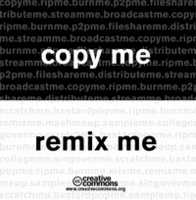|
This is my dynamic, frequently updated homepage. This is a NewsLog, also known as a WebLog or Blog.
Everything is evolving, so don't assume too much.
People to watch:
Adina Levin
Andrius Kulikauskas
Britt Blaser
Catherine Austin Fitts
Chris Corrigan
Clay Shirky
Dan Gillmor
Dave Pollard
David Allen
David Weinberger
Dewayne Mikkelson
Dina Mehta
Doc Searls
Elisabet Sahtouris
Elizabeth Lawley
Euan Semple
Florian Brody
Frank Patrick
Gen Kenai
George Dafermos
George Por
Graham Hancock
Greg Elin
Hazel Henderson
Heiner Benking
Inspector Lohman
Jean Houston
Jerry Michalski
Jim McGee
Jim Moore
John Abbe
John Perry Barlow
John Robb
Joi Ito
Jon Husband
Jon Lebkowsky
Jon Udell
Jonathan Peterson
Judith Meskill
Julian Elvé
Julie Solheim
Kevin Marks
Lawrence Lessig
Leif Smith
Letecia Layson
Lilia Efimova
Lisa Rein
Marc Canter
Mark Oeltjenbruns
Mark Pilgrim
Mark Woods
Martin Dugage
Martin Roell
Mary Forest
Matt Mower
Max Sandor
Michael Fagan
Mike Owens
Mikel Maron
Mitch Kapor
Mitch Ratcliffe
Nathalie dArbeloff
Netron
Noam Chomsky
Paul Hughes
Peter Kaminski
Phil Wolff
Philippe Beaudoin
Ray Ozzie
Raymond Powers
Rebecca Blood
Roger Eaton
Roland Tanglao
Ross Mayfield
Scott Lemon
Sebastian Fiedler
Sebastien Paquet
Skip Lancaster
Spike Hall
Steven Johnson
Stuart Henshall
Thomas Burg
Thomas Madsen-Mygdal
Thomas Nicholls
Timothy Wilken
Todd Suomela
Tom Atlee
Tom Munnecke
Tom Tomorrow
Ton Zijlstra
Lionel Bruel
Loic Le Meur
Nancy White
Mark Frazier
Merlin Silk
Robert Paterson
Colby Stuart
Nova Spivack
Dan Brickley
Ariane Kiss
Vanessa Miemis
Bernd Nurnberger
Sites to watch:
Electronic Frontier Foundation
Co-intelligence Institute
Free Expression Network
Collective Intelligence
Action without borders
Manufacturing Dissent
Explorers Foundation
Disclosure Project
ThoughtsOnThinking
Forbidden Science
Emergent by Design
Greater Democracy
Global Ideas Bank
Independent Media
Space Collective
Friendly Favors
Escape Velocity
Disinformation
Collective Web
WorldChanging
YES Magazine
Disinfopedia
NotThisBody
MetaFilter
Webcamorama
BoingBoing
Smart Mobs
Do No Harm
Imaginify
FutureHi
Openworld
Nanodot
HeadMap
Rhizome
Absara
Edge
Junto
French:
Emmanuelle
Manur
Elanceur
Loeil de Mouche
IokanaaN
Blog d'Or
Le Petit Calepin
GeeBlog
Absara
Guillaume Beuvelot
Ming Chau
Serge Levan
Jean Michel Billaut
C'est pas Mécanique

I live in Toulouse, France where the time now is:
01:11
Unique Readers:

Primarily
Public Domain
Everything I've written here is dedicated to the
Public Domain.

The quotes from other people's writings, and the pictures used might or might not be copyrighted, but are considered fair use. Thus, overall, this weblog could best be described as being:
Primarily Public Domain. |
Syndication:
 ![Validate my RSS feed [Valid RSS]](http://www.newciv.org/pic/valid-rss.png)
|
| Friday, April 1, 2005 |  |
|
|
|
 Web Waste is the Internet Rubbish Dump. Instead of just emptying your trash or recycle bin, you run a little application which uploads it to this site. And then people can see a nice Flash animation of all the pictures, videos, sounds and pieces of text that people have thrown away. So, nothing goes to waste. Web Waste is the Internet Rubbish Dump. Instead of just emptying your trash or recycle bin, you run a little application which uploads it to this site. And then people can see a nice Flash animation of all the pictures, videos, sounds and pieces of text that people have thrown away. So, nothing goes to waste.
[ Culture | 2005-04-01 14:20 | | PermaLink ] More >
|
|
|
|
 If you think that BoingBoing might be a little too interesting, you can now switch over to BoringBoring, a directory of dull things. And it doesn't disappoint. It highlights dull products such as plain white t-shirts and flat surfaces to put things on. And uninspired suggestions like taking your knitting needles on a plane, and constructing two-dimensional surfaces from yarn. If you think that BoingBoing might be a little too interesting, you can now switch over to BoringBoring, a directory of dull things. And it doesn't disappoint. It highlights dull products such as plain white t-shirts and flat surfaces to put things on. And uninspired suggestions like taking your knitting needles on a plane, and constructing two-dimensional surfaces from yarn.
[ Culture | 2005-04-01 14:27 | | PermaLink ] More >
|
|
|
|
 Google announces the introduction of Google Gulp (beta), a drink that will make you smart enough to actually understand your search results. Google announces the introduction of Google Gulp (beta), a drink that will make you smart enough to actually understand your search results.Think a DNA scanner embedded in the lip of your bottle reading all 3 gigabytes of your base pair genetic data in a fraction of a second, fine-tuning your individual hormonal cocktail in real time using our patented Auto-Drink™ technology, and slamming a truckload of electrolytic neurotransmitter smart-drug stimulants past the blood-brain barrier to achieve maximum optimization of your soon-to-be-grateful cerebral cortex. Plus, it's low in carbs! And with flavors ranging from Beta Carroty to Glutamate Grape, you'll never run out of ways to quench your thirst for knowledge. Gee, they seem to be everywhere, those Google guys.
[ Culture | 2005-04-01 14:37 | | PermaLink ] More >
|
|
| Thursday, March 31, 2005 |  |
|
|
|
 There are some logical problems involved in some of the things that people would consider making into law. Some of the hot political issues that lawmakers are arguing about, which seem to have clear for or against sides, really don't. There are some logical problems involved in some of the things that people would consider making into law. Some of the hot political issues that lawmakers are arguing about, which seem to have clear for or against sides, really don't.
Take abortion. Are you for or against the right for a woman to choose to have an abortion? Those two views are usually presented as being sort of equal. Like it is a cross road and one needs to choose if it is left or right.
But the right to choose is not the opposite of abortion being illegal. The opposite of abortion being forbidden would be abortion being enforced. I.e. you have to have it. And there are places where that might indeed be a law. I don't know if China still has such laws. But, actually, logically, that fits better as the alternative.
If one is free to choose, one is free to choose. Meaning the result might be an abortion or it might not be. Depends on the situation and what the people involved think is right and meaningful and safe. Taking away that choice and making the answer always be the same is not comparable. The structure of that option is totally different from the option of choice.
Whether guns are illegal or not would be a similar set of opposites that aren't really opposite. The opposites of guns being forbidden would be that you have to have a gun. There's no real opposite of free choice, as free choice is not a particular choice, but rather the freedom to choose it when the situation comes up.
So, we could at least better say that no-choice is the opposite of choice. It would be worthwhile to be extremely aware of that whenever one chooses a no-choice option.
The particular option that is being enforced is merely clouding the issue. The real situation is that choice in a certain arena is being forbidden.
That's always a dangerous thing. However smart you are, you will not be able to predict all possible situations that any possible individual might find themselves in. Trying to pretend that you know the answer in advance to all such possible situations is rather arrogant and presumptuous. And wrong. You don't. So if you make an absolute law and you somehow, regrettably, have the power to make it be enforced, you most certainly will make things be wrong for a whole bunch of people, in situations you didn't take into consideration, or that you didn't want to consider.
Politicians in many places will take laws as some kind of statement of intent. Making a point. Setting a standard. So they will actively be part of establishing an absolute law, without needing to take much responsibility for all the situations where it doesn't fit, and without taking the responsibility for the fact that other people, wielding a large amount of force, will enforce that law rather blindly.
So, a politician might think: "We need to protect the children" and will vote for some law that forbids nude pictures on the internet, or that forbids people under 18 from having sex or something. He's trying to make some kind of moral point, and he's trying to influence the world into being like a certain picture he has in his mind, of what is good and proper, and how things "should" be. It is just that it isn't how it is, for most people. And a law might not change that much. It might simply authorize a fairly unlimited amount of violence in trying to make the world fit the "should". And it came from somebody trying to solve some problem, trying to avoid some "wrong" in their mind, and frequently picking a solution that doesn't at all fit the problem. Because the sense of logic necessary for even understanding this is not one of the requirements for being a politician or a policeman.
Many politicians who stand for a certain issue, and who would vote for making it law, will, if cornered, admit that they would choose differently in their own lives. What would you do if it were your own 16 year old daughter who got pregnant and she wanted an abortion? George Bush Senior had the honesty to answer that he of course would support her in her choice. But what if he already had made it illegal, without thinking of the consequences?
Once something is a law, a big state apparatus is in place to enforce it. How absolutely they do that will depend on the area, on the traditions of that country or region. For example, in the U.S. the law is not typically something you can reason with. Oh, there are great loopholes in the system, so one might get away with all sorts of things, because nobody's watching, or nobody currently has an interest in enforcing the law. And there are all sorts of legal small print and procedures that might help you get away with things. But if you really are in the search light of the law, and the law has decided you're wrong, there's no particular limit to the amount of force that will be applied to make you comply.
The fictional example I'd usually give would be if you decided to park somewhere you're not supposed to, like in an intersection. There would be a gradient of increasingly severe interventions that would be applied to make you not do that. First somebody might ask you to move. They might give you a ticket. If you're still there, they'll send a tow truck. If somehow you've bolted the car to the street, and you insist on defending your right to be there, it will quickly escalate. Armed cops will arrive, and if you somehow manage to prevail, it will eventually be teargas, then snipers and tanks. And they will eventually kill you, if they fail to remove you. And somebody will be able to say that they felt threatened and you lifted your arm suspiciously or something. So the public wouldn't think much about the insanity of being killed for a parking violation. You'd be some crazy, dangerous person. Even if all you had done was to park and stay parked.
Now, that would be in the U.S. And probably in China or in Russia. In most EU countries it would never go that far. In France they'd start a dialogue with you about why you're doing it, and what point you're trying to make, as they have an innate respect for the right to publicly make a point, even if it is inconvenient. In Denmark they might just leave you alone, if no good non-violent solution could be found, and hope you'd get tired of being there. OK, I'm making it a little more stereotypical than it is.
The point is simply that to make a law that is of the kind that is absolute and that will be enforced with physical and economic force, and threat of violence or incarceration - you need to be very, very careful to actually think through the consequences of that.
Very few things are suited for being legislated that way. Actually, maybe there's nothing that's suited for being legislated in absolute terms. Where there's a need to some absoluteness is mainly in the regulation of the requirements for participating in certain activities. If you want to drive a train on this railroad, the wheels of your train need to be 1435mm apart. If you're sending in your tax return, it must be on A4 paper. But that's more like regulations than laws. You can go and make trains of any width you want in your back yard, and write letters on any paper size you want, without going to jail.
Big wide-reaching laws would have to have a lot of qualifiers to them to work. Doesn't work to say that if you kill somebody you go to jail for 20 years. Because it depends. Sometimes, very, very rarely the right choice might be to kill somebody. You know, self defense, when all other options have been exhausted. Of course the laws in most places have some leeway built in in that regard. But hot political issues often end up with the least leeway in the law. In California there's a three strikes law. You will go to jail for life, without any room for choice, even if your third strike was stealing a loaf of break because you were hungry.
Taking away choice is generally a bad idea. The existence of a choice doesn't mean all choices are equal. A society might need to have negative consequences for making bad choices. Simply having a law with an enforced fixed outcome is a bad way of doing it. Laws that provide guidelines for what one is trying to accomplish is a better idea. And some guidelines are more important than others. Health, safety and happiness might be more important than any specific rules for how one might get there or not. A lot of choices might need to be made, on things that aren't known in advance.
Legal systems typically always have some kind of room for maneuvering. The cop will have to make the choice on whether he arrests you or not. There are lawyers and court cases and juries who will make choices. There are loop holes. The system might not work great, but there is room for reason and luck.
Now, however, technology might make it possible to enforce policies or laws without any room for choice or for maneuvering around them. You know, the automatic radar and camera that catches you speeding and sends you a ticket in the mail. No room for explanation or for reasoning about whether it was safe or there was a good reason for what you were doing. Same principle with an assortment of Digital Rights Management schemes that various media publishers are trying to push through. Like a DVD that will self-destruct in 24 hours, or a song you can only play on one piece of equipment, or a TV show where you can't skip the commercials. Your choice of how you will use things is suddenly gone. And the frightful thing is that the media publishers legally might be considered to have the right to control how you use what you buy from them. Which makes life a lot more boring and complicated, as you no longer are free to make your own choice of what you do when and how. It is a trend that this kind of thinking spreads to other kinds of technologies. A printer that will refuse toner cartridges bought in another country. Or that will refuse to copy certain images. If you've bought a printer fairly recently, you might be surprised to know that it is programmed to not be able to copy US dollar bills. Now, you're legally not supposed to, so you would be the looser in any argument against it. But your choice of whether you do so or not is gone.
Our societies are traditionally designed to have lots of loopholes, or maybe they accidentally ended up that way. There are all sorts of laws and rules and control mechanisms in place, but there are so many holes in them that even if those laws and rules are unfair or crazy or oppressive, you can still live your life somewhat sensibly around them. But if suddenly those laws can be monitored and enforced consistently and maybe automatically, we'd be in a whole lot of trouble. Imagine if you would get a speeding ticket in the mail whenever you passed the speed limit, because a sensor in your car wirelessly informed the police department. Imagine you couldn't make a photocopy of anything that is copyrighted, because the photocopier just wouldn't work. Imagine the tax department automatically calculated your taxes based on having watched everything you'd done, every penny you've gained or spent. Imagine you'd instantly be charged when you do or say something that could be construed as sexist or racist or subversive. Imagine automatically being hauled off to jail for practicing sexual activities in your bedroom that you didn't know were illegal in the state you live in. Oral sex is punishable with prison terms of one to twenty years in several U.S. states.
The law in most places is an incomprehensible self-contradictory mess. As the world gets more complex, and as more pervasive monitoring and enforcement methods become available, that becomes all the more clear. So you might either see a more and more surreal police state, or somebody will have to go back and rethink law altogether. Based on the diversity of choice. Choices with consequences. And one size never fits all.
[ Thoughts | 2005-03-31 23:59 | | PermaLink ] More >
|
|
| Tuesday, March 29, 2005 |  |
|
|
|

?
[ Diary | 2005-03-29 11:40 | | PermaLink ] More >
|
|
|
|
 One of my standards for evaluating how free a society would be would be the inverse of the degree to which it suppresses various kinds of "vices" and "indecent" or "immoral" behavior. One of my standards for evaluating how free a society would be would be the inverse of the degree to which it suppresses various kinds of "vices" and "indecent" or "immoral" behavior.
Sex and drugs and free communication, primarily. You know, is nudity illegal? Or saying "bad" words. Or smoking or hallucinogenics. Or prostitution. Or odd sexual fetishes.
Personal choices and life styles and modes of expression. The degree to which a society feels it needs to use force to control those is closely related to the degree it is being oppressive.
When a lot of people share a society, it can be quite practical to have laws that regulate the interaction between them and protect their health and liberty. Driving in the same side of the street really makes things much easier. Having somebody to call when your house gets burglarized makes you safer. But for a public authority to try to control your personal habits, for no other reason than that somebody doesn't like them, is a totally different matter.
Victimless crimes, essentially. Which generally aren't really crimes, but manifestations of the existence of slavery and mind control, enforced by physical or economic violence.
A society where you aren't allowed to say "fuck" or show your breasts on TV is kind of sick. It indicates there are some perverts in charge who have a big hangup on sex, thinking they have to control everybody else, because they're afraid of their own thoughts, probably.
The view that sex or nudity is somehow bad or evil or indecent or offensive is at best a little strange. Certainly has nothing to do with what we find in nature. We're all born naked, and remain so under our clothes. We all got here by some people having sex and enjoying it greatly. There can hardly be anything more natural. That it is an evil thing comes out of a twisted religious mindset, which itself is the cause of much evil in the world.
"But we need to protect the children!" many people would say. From what? From the knowledge of how they came about? The idea that sex and children have to be kept far apart, or some kind of disaster happens, is in itself rather weird. From nature's hand, things tend to progress by themselves in a healthy way, if you don't mess with it. Little kids just don't have much interest in sexual subjects. But at some point they reach adolescence, and they certainly do. But then they run into oppressive laws that tell them they have to be children in that regard until they're 18, and that they have no right to choose to be sexual. Depends on the society. The age of consent is higher in the more oppressive societies.
So, what in some places is a healthy expression of sexuality, at a natural stage of one's life, will in other places be considered child pornography and molestation, and something one will lock people up for life for. You know, the topless girls in a Danish tabloid newspaper might just be 15 or 16. Which would be unthinkable in the United States, where there certainly wouldn't be any nudity in a newspaper, and it certainly wouldn't be teenagers.
Now, I've lived in the U.S. for so long that even a couple of years later I still instinctively get the american moral reactions some of the time. Even if I never believed in them. It is more a matter of looking over your shoulders for the police coming to arrest you because you did something unthinkably horribly bad, like serve alcohol to somebody under 21, or take a photo of some naked kids running through the sprinkler in the summer.
Now I'm in France, where even the gas company uses nude people in their commercials on TV. Which is absolutely non-controversial. People here would have a hard time understanding how there possibly could be any kind of issue with that.
And "bad" words? Most French try hard to be very polite, and expect others to be polite, so there are certain things one would tend not to say when one is in that mode. But that has absolutely nothing to do with whether it is illegal to say certain words in a public medium. You can say fuck all you want, or the equivalent, if that's somehow fits the mode of communication you're using. And a lot of the time it doesn't fit. See, it is your choice.
Here they serve wine in the cafeteria in high school. Zero issue with that. If you want water, you take a water carafe; if you want wine, you take a wine carafe. So, are the kids drunk all the time? Stupid question. On the contrary. Everybody has a very relaxed relationship to alcohol, so it isn't a problem. Oppressive and unnecessary regulation only makes things worse.
Smoking. Well, the cigarette packs in all of Europe by law have forceful hypnotic commands on them. Essentially: You're going to die!! Horribly, painfully, slowly! I could say a lot about the pitiful lack of understanding of the human mind that goes into producing such a campaign, as a self-fulfilling prophecy, but that's another story. Anyways, it is quite likely most of Europe would end up with similar control of smoking as in the U.S.
Am I saying that's bad? I'm saying that lack of choice is bad. And lack of good, balanced information is bad. "Smoking Kills!!" is propaganda. It is probably illegal in many places to provide any more balanced information. Smoking is a drug addiction. There are many drugs with various pros and cons and things to say about them. Coffee, sugar, heroin, nicotine. They're not all the same. But generally nobody is taking them for their harmful effects.
So, drug use. I'd say a society that leaves it up to the individual to choose, but which provides good information and support, is way more healthy than one that just makes it all illegal. The statistics show quite clearly that Holland has way fewer problems with drugs and drug related criminality than places that try to outlaw it. Lower rate of drug use, fewer fatalities, fewer health issues, less crime. Making the use of certain drugs illegal merely fuels a huge multi-billion dollar criminal drug industry, and puts a lot of people under serious health risks, because they don't know what they're getting, and there's no help available for them. And, as always, making a whole bunch of different things all the same in the eye of the law or in education brings all sorts of nasty problems. Heroin is not the same as marihuana. Neither is the same as most hallucinogenics, which typically aren't addictive. Making those illegal is probably mostly a matter of trying to stop people from stumbling into thinking out of the box. And, again, the negative effects are much greater when it is illegal, and you buy some unknown substance from some guy on a street corner, rather than from a pharmacy. Quite likely it is because somebody in power actually desire the population to have the negative effects, rather than any more balanced and healthy experience. Or because they benefit from the big money is the criminal drug industry.
Prostitution. I think women (or men) should be free to choose who they'll have sex with, as long as all parties agree. And if one of them earns money from it, so what. Making money from providing a service is an empowering thing. Prostitution is a valuable service, which relieves all sorts of pressures that otherwise could be let out in harmful ways. Making it illegal will only create a criminal industry around it, with pimps and violence. Making it illegal will ensure all sorts of health issues, and make it hazardous for both prostitutes and their customers. Again, countries that have legalized prostitution, like Holland or Germany, can clearly show the beneficial effects in their statistics. People who're trying to outlaw prostitution will usually do it out of some religious or moral belief, for some reason believing that women should not be free to choose where and when to apply their sexuality.
The question is who comes up with the "shoulds" and why, and the degree to which they succeed in getting government power to enforce their particular view. Somebody's personal choice gets elevated to law, so that everybody will be forced to make the same choice. A society that lets that happen has problems.
Real life is full of nuances. Everything has degrees and pros and cons. Some things are fun, but dangerous. Some things are risky and enjoyable at the same time. A free society needs to allow people to make choices that fit their nature, particularly when it is personal choices that don't harm others. That others might take offense is not a good enough reason to outlaw something. It just isn't good enough that there are groups that think that certain behaviors are bad. They're free to make their own choice, but not to enforce it on everybody else. If they don't feel like being gay or engaging in S&M or taking ecstasy or smoking or drinking or appearing nude in a magazine, no problem. But some people do, and feel like a whole lot of things that might be horrifying to others. That's what choice is about. It is up to you what you choose. It is not up to you to rule that all traces of those things you don't choose get weeded out of society. There needs to be room for all of us here.
So, again, a good test of the freedom of a society is how it deals with all those personal behaviors that might be considered by some to be immoral, bizarre, dangerous, perverted, unhealthy, indecent. And the funny thing is that if such choices are freely allowed, they right away become a lot less unhealthy and dangerous and strange. Because oppression and repression and suppression are the real dangers.
[ Thoughts | 2005-03-29 17:57 | | PermaLink ] More >
|
|
|
|
 Remember Giuliana Sgrena, the Italian journalist who was freed in Iraq, and shot at by U.S. forces, and her rescuer, an Italian intelligence agent, killed? There's an interview with her where she sets the record a bit more straight. Transcript, audio, video. It indicates quite clearly that the official U.S. government version of events is a fabrication. The official story was that their car was driving on one of the most dangerous roads in Baghdad, and didn't stop when asked to at a checkpoint, and the soldiers were afraid for their safety, so they shot in self-defense. Remember Giuliana Sgrena, the Italian journalist who was freed in Iraq, and shot at by U.S. forces, and her rescuer, an Italian intelligence agent, killed? There's an interview with her where she sets the record a bit more straight. Transcript, audio, video. It indicates quite clearly that the official U.S. government version of events is a fabrication. The official story was that their car was driving on one of the most dangerous roads in Baghdad, and didn't stop when asked to at a checkpoint, and the soldiers were afraid for their safety, so they shot in self-defense.
They weren't on that road at all. They were driving on a secure VIP road, going directly from the secured Green Zone to the Baghdad airport. A road only used by military and embassy personnel.
There was no checkpoint. There was a tank standing off the side of the road, which didn't signal in any way for them to stop.
The tank shot at them from behind, without warning, with a high caliber gun. A four inch bullet penetrated her lungs and her shoulder.
Oh, it could of course still have been an accident, a mistake, a misunderstanding. Maybe the Italians forgot to notify the Americans that they were going to take that road, and maybe they were supposed to, I don't know. But the cover story is false. And, quite obviously, we're only even hearing about this because this is a high profile, very well covered story, involving government officials and journalists. If it had just been some ordinary Iraqies who were in the wrong place at the wrong time, they would just have been bitterly buried by their families, and at best, if somebody bothered to count them, they would have been part of some statistic. You know, like 100,000 dead Iraqies, who all happened to be in the wrong place at the wrong time.
[ News | 2005-03-29 20:34 | 0 comments | PermaLink ]
|
|
| Monday, March 28, 2005 |  |
|
|
|
ZoomInfo is a brand new site that claims to produce people's resumes automatically by crawling the web and figuring out what information is relevant. Article here.
Now, that's rather amusing. I try with my own name, of course. It has 12 entries, all of which are me. The first one isn't half bad. Well, it is. It would be useless as my resume, but it is intriguing what it found. It identifies me primarily as a Board Member of "Web Angesl". Should be "Web Angels", I'm sure. Not that I remember joining any such thing. I guess that is is a workgroup within NCN that wanted to give me an honorable mention. Maybe more appropriate it also identifies me as founder of NCN, although it is as my "Past Employment History". And, quite impressively, it identified me as an Advisory Board Member of the Institute for the Study of Accelerating Change. I had forgotten all about that. Anyway, it also found some other snippets of biographical information about me. And an interview.
Amusingly, it labels all of these sites as "companies" and everybody it finds related to them as "employees".
I don't think this is really going to work. But I'm impressed that somebody will try to do this and that it is even partly in the right ballpark.
[ Information | 2005-03-28 01:20 | | PermaLink ] More >
|
|
|
|
 Trepanation was quite popular in the middle ages, and even in pre-historic ages, as a supposed cure for an assortment of ailments. It is essentially that one drills a hole in somebody's head, or cuts out a triangular piece of their skull. Which there could be some legitimate use of, if your brain is swollen, for example. But nowadays there are people who advocate it as being good for somehow increasing your consciousness. So, read the story of this guy who thought it might be a good idea, and did the operation with the help of a couple of friends, a trip to a medical supply store, and some instructional videos. He survived alright, and was happy with it at first, but ended up concluding it probably wasn't such a good idea. Yeah, well, it probably wasn't. Trepanation was quite popular in the middle ages, and even in pre-historic ages, as a supposed cure for an assortment of ailments. It is essentially that one drills a hole in somebody's head, or cuts out a triangular piece of their skull. Which there could be some legitimate use of, if your brain is swollen, for example. But nowadays there are people who advocate it as being good for somehow increasing your consciousness. So, read the story of this guy who thought it might be a good idea, and did the operation with the help of a couple of friends, a trip to a medical supply store, and some instructional videos. He survived alright, and was happy with it at first, but ended up concluding it probably wasn't such a good idea. Yeah, well, it probably wasn't.
[ Culture | 2005-03-28 02:00 | | PermaLink ] More >
|
|
|
|
 An assortment of troublemakers have fun throwing wrenches into the wheels of commerce. To make a point, I guess, about commercialism and consumerism and big corporations. Like there's gatt.org, a parody of a World Trade Organization website, so well done that they've accidentally been invited to speak at WTO conferences, which they exploited to the hilt with outrageous performances. Here are some other exploits: An assortment of troublemakers have fun throwing wrenches into the wheels of commerce. To make a point, I guess, about commercialism and consumerism and big corporations. Like there's gatt.org, a parody of a World Trade Organization website, so well done that they've accidentally been invited to speak at WTO conferences, which they exploited to the hilt with outrageous performances. Here are some other exploits: A group calling itself Whirl-Mart infests the halls of commerce with site-appropriate dance: The ritual consists of interested humans arriving at a predetermined Wal-Mart at 12 noon on the first Sunday of every month and proceeding to push empty shopping carts slowly and silently through the aisles. Eventually, all of the participants locate one another and form a single-file chain of anti-shoppers which weaves, wanders, and whirls throughout the different departments of the store for about an hour. Overall, it is a soothing and fun experience for the actors, and perhaps a memorable spectacle for shoppers. It is a collective reclamation of space that is otherwise only used for buying and selling. It is a symbolic display of the will to resist the capitalist ideology. And, it is a living, breathing, moving, evolving sculpture.
A parody group calling itself the Organization of Corporations Against Coöperation staged a protest against small business and in favor of giant corporations. They picketed a small bookshop with signs saying things like "Size Does Matter" and urged passers-by to patronize instead huge chain bookstores. The same group later managed to get a branch of one such giant bookstore chain to close for one day - they masqueraded as a pro-corporate taskforce who was monitoring local anti-corporate activity and said that a planned protest might get out-of-hand, recommending that the bookstore close up shop for the day of the protest. Or, how about the guys who create prayer services where they gather in supermarkets to worship the wonderful products that we're presented with. "Praise the fresh chickens and their fleshy whiteness!". Yeah, halleluja.
[ Culture | 2005-03-28 14:11 | | PermaLink ] More >
|
|
| Sunday, March 27, 2005 |  |
|
|
|
 I'm somewhat addicted to news. The trouble is just that there never is any. I'm somewhat addicted to news. The trouble is just that there never is any.
Oh, I don't watch the TV news or read newspapers all that much, although I sometimes enjoy both. I mostly read online news. I check various major news sites, even though there usually isn't much new. More interesting are various major blogs and bookmark aggregation sites. I'm currently feeling a little too busy to check through all the blogs in my blog aggregator, so most days I just check a few key places. Which often have a few things of interest. Even if the same stories often appear in several places. You know, Boing Boing is great, but they obviously read Metafilter too. Or vice versa. Loads of blogs and bookmark sites end up mentioning the same stuff. Which is part of how the blogosphere works, so it is not a bad thing.
But there's not much news. Or a lot of it is old. I get various newsletters in e-mail, people who gather together the most unique or interesting stories in the news. And by the time they get around to sending it out, I've heard all of them before. And it is not that I really spend a lot of time looking everywhere. It is just that the available stories move around so fast, and get automatically filtered through the selections of many bloggers, that they're yesterday's news when somebody does their weekly newsletter.
It is also that I usually don't consider news news. Oh, I do try to pay some attention to what various governments are doing, and where there's a war, and what the latest disasters are. But it is not all that interesting. The better news is usually when somebody finds a new twist on something, or writes something inspiring, or discovers something new and creative one can do. I almost find it more fruitful to search for completely random things in Google than I do trying to read news.
Likewise, I find it more interesting when somebody else does the same, and discovers something interesting. Doesn't have to be google, any source is fine. I'd rather hear what you surprisingly found in your attic or some off the wall idea you had in the bus than to read the same recooked news of the same old things happening a little more.
We too easily end up going in circles. Probably some kind of design problem in the brain or something. The real interesting stuff is the unexpected angles. Lateral thinking. Creative lightning strikes.
New input. Where does it come from? So much is recooked that it can be hard to see where the new stuff is. Most news infrastructure is broken. Blogging is a ray of hope at least, even if a lot of it just is about quoting each other. It is at least a medium for interesting stuff to propagate, even when it doesn't just support the status quo world view of people in power. Bloggers typically prefer reporting something different. Real news does have a substrate to grow in.
But it is sort of odd. The world is moving faster and faster, and there's more and more information, and new things are being developed every day. How can there be a scarcity of things to report on? There probably isn't. But there might be some disconnects there, so it is difficult to see what is really going on, because there's too much, and lots of information travels in old ways that haven't caught up with our accelerating evolution.
What's new today? Where do I look to find out? Who do I ask? Where's the pulse?
I'm looking for signs of life.
[ News | 2005-03-27 02:49 | | PermaLink ] More >
|
|
|
|
 As to where the news is.. As to where the news is..
What would be good news sources for a networked society that has different priorities than the old fashioned media?
An oldfashioned newspaper or TV station would have a line in with the frontline for various kinds of news. There'll be somebody listening to the police radio channels. There'll be somebody at the government capitol, or the local town hall, trying to keep up with the issues that pass through. Somebody watches and analyzes the stock market. Somebody will be monitoring the major cases in the court house. There will be a helicopter that can go where some action is reported and get video from the air. There will be reporters sent out to war zones, catastrophe areas, and that kind of thing. Plus if that particular news organization doesn't have the resources itself, it will get wires from bigger news organizations that do it.
But even with all of that, journalists are busy, and they often need to have a story today or tomorrow. So very often they're merely passing on what somebody else said or wrote. Their story might simply be the summary of some report somebody did. It might be a rewrite of somebody's press release. The key points of somebody's book. An interview with somebody who seems to know what is going on. Probably only rarely is there time or interest in actually getting to the bottom of what is going on, or double-checking everything. So the mosaic of a certain general image is being presented, even though it might not really be the truth, or the most important things to know. Just because everybody's flocking to roughly the same sources.
So, say you were a blogger, who wanted to write about interesting things going on, and you wanted more primary sources, to maybe discover a different picture than what you were fed, where would you go? Do you know the difference between primary sources and secondary and tertiary?
Let's say there is something going on somewhere. A tsunami, a war. You'd want to hear from the local people who're there. The locals, the people on the ground, the people who're plugged into the action. And, indeed, if people like that have blogs, that's some of the most interesting stuff. Salam Pax, an Iraqi inside Iraq before the invasion. Kevin Sites, photo journalist in Iraq.
Back when NATO was bombing Yugoslavia it made a big impression on me that I could chat online with a friend in Beograd, in-between the bombing raids and power failures. You usually get a very different story than what appears in the normal media.
But how do you find these people when you're looking? Maybe there will just be enough bloggers that you'll always be able to get the real story from the ground, I don't know. Or maybe others will find such stories interesting enough that they'll be passed on to you somehow. But it might be nice with a more organized way of finding a local voice in some particular area.
A problem with a lot of news is that it is a little haphazard what you'll hear, and you might not get any follow-up at all. Like, somebody might write an article about some promising new discovery or invention. And very often, that's all you'll ever hear about it. Nobody wrote an article as a follow-up, a year later, telling you what actually happened. Somebody invented super-cheap solar cells, discovered the ruins of Atlantis, or whatever. Sounds very interesting. And then you never hear about it again. I want to hear what didn't work out about it. They were mistaken, they didn't get funding - what happened? And the trouble is that that's very hard to find out if nobody wrote an article about it. Or unless I had a lot of time on my hand to research it and call people and try to find out. I certainly couldn't do that with everything I might be interested in. But a network of people could, if there were an organized way of remembering open issues.
Statistical data can be a source of news, if you have enough of it. You could find out what is better, what is worse, which trends seem to be related to each other, etc. That is, if you had access to the data in a fairly consistent and timely manner. It shouldn't be hard for you to check for yourself how it is going with global warming, whether the economy is better or worse, how different parts of the world are doing. But it is, for some reason. I don't know anybody doing that. We seem content just reading an article about some several year old statistical report, telling us what it means. I'm sure there are all sorts of issues involved in gathering and normalizing data, but it really shouldn't be unthinkable that I could look for myself. Maybe I can and I just haven't plugged into the right places. I mean, people who're into stock markets will watch all sorts of stats continually. Consumer price indexes, unemployment rates, from month to month. They just don't seem to produce the kind of data I'd find interesting.
There are all sorts of people who're at the forefront of something interesting happening. Scientists, explorers, activists, aid workers, government officials. Should I hope for that they'll all have blogs and that they'll give us the straight dope about what is going on? Maybe. Blogging gives a lot of reasons to hope for hearing the truth more often. But, still, a lot of people who do important things are too busy to chat about it. Or they're in organizations that don't believe in sharing it freely. Or they're in a system where what they're doing will have to be peer reviewed and published before it is mentioned publically.
Really, I'm just looking for what channels I should be listening on, to get what's really worth knowing, that's new and enlightening and constructive. It is still a bit of a toss up, whether I'll miss it or not. The possibilities for accessing more primary sources are advancing. But so are the possibilities for painting phoney virtual realities.
Or maybe the answer is to make one's own news. Instead of flipping through the channels, trying to figure out what is going on, make your own channel. Make something worthwhile happen, and report on it. The best way of predicting the future is to create it. The world is waiting for you and I to do our part.
[ News | 2005-03-27 23:12 | | PermaLink ] More >
|
|
| Saturday, March 26, 2005 |  |
|
|
|
 Via Kim, a list of U.S. government patents from Illuminati News. Patents for a variety of technologies obviously meant to control your behavior. The links go to the actual patent records with the Patent and Trademark Office. Via Kim, a list of U.S. government patents from Illuminati News. Patents for a variety of technologies obviously meant to control your behavior. The links go to the actual patent records with the Patent and Trademark Office. - Patent 3,951,134 - Apparatus and method for remotely monitoring and altering brain waves
- Patent 4,717,343 - Method of Changing Person's Behavior
- Patent 4,877,027 - Hearing System
- Patent 5,123,899 - Method and System for Altering Consciousness
- Patent 5,159,703 - Silent Subliminal Presentation System
- Patent 5,270,800 - Subliminal Message Generator
- Patent 5,507,291 - Method and an Associated Apparatus for Remotely Determining information as to Person's Emotional State
- Patent 5,539,705 - Ultrasonic Speech Translator and Communications System
- Patent 5,629,678 - Personal Tracking and Recovery System
- Patent 5,760,692 - Intra-oral Tracking Device
- Patent 5,878,155 - Method for verifying human identity during electronic sale transactions
- Patent 5,905,461 - Global Positioning Satellite Tracking Device
- Patent 5,935,054 - Magnetic excitation of Sensory Resonances
- Patent 5,952,600 - Engine Disabling Weapon
- Patent 6,006,188 - Speech Signal Processing for Determining Psychological or Physiological Characteristics Using a Knowledge Base
- Patent 6,014,080 - Body Worn Active and Passive Tracking Device
- Patent 6,017,302 - Subliminal Acoustic Manipulation of Nervous System
- Patent 6,051,594 - Methods and Formulations for Modulating the Human Sexual Response
Gee, I'm glad they protected their intellectual property before this stuff fell into the wrong hands. Oh, no, too late. I'm ... feeling ... a little ... disoriented.
[ Information | 2005-03-26 15:19 | | PermaLink ] More >
|
|
| Friday, March 25, 2005 |  |
|
|
|
 Wade Roush made some thorough Notes from a very nice speech by Lawrence Lessig last week. About how important it is that we're free to remix media, as we always could before the digital age. You know, you could buy a magazine, cut out the pictures and make a collage and show it to people. And you can make a funny hat out of the rest of the magaine. Now, with the internet and lots of new tools, people are doing all sorts of creative things that reuse content in interesting ways. But there are strong forces that are trying to make all of that illegal. If they have their way, you can only use media they've sold you in the exact way they had in mind. You know, you can only watch this DVD twice, and only on your own TV. Or you can only watch this broadcast program on Thursdays and you can't fastforward over the commercials. No getting creative and using it differently. Wade Roush made some thorough Notes from a very nice speech by Lawrence Lessig last week. About how important it is that we're free to remix media, as we always could before the digital age. You know, you could buy a magazine, cut out the pictures and make a collage and show it to people. And you can make a funny hat out of the rest of the magaine. Now, with the internet and lots of new tools, people are doing all sorts of creative things that reuse content in interesting ways. But there are strong forces that are trying to make all of that illegal. If they have their way, you can only use media they've sold you in the exact way they had in mind. You know, you can only watch this DVD twice, and only on your own TV. Or you can only watch this broadcast program on Thursdays and you can't fastforward over the commercials. No getting creative and using it differently."We’ve set up a system of regulation so that these forms of expression are illegal. So we can’t teach them to our kids--that would be schools promoting piracy. We can’t promote them with our businesses. All we can do is focus on how to punish those who write with the ordinary tools of the 21st century.
Existing law conflicts with the technology of the 21st century and that gives us a choice: Reform the law or reform the technology. Since 1998 there has been a clear choice—it was made for us by our own village doctors. They assembled in Congress and what they have collectively given us as an answer to this choice--reforming the law or reforming the technology--is to utter the words of HG Wells: To cure them, all we need to do is a simple and easy surgical operation, namely to remove the irritant body, the machines, your technology. They want to blind us. To conform us to 18th century law." He's making a very appropriate reference to an HG Wells story about somebody arriving in a city of blind people, and not quite behaving "right" according to their norms before they got the bright idea of removing what was wrong with him - his eyes.
[ Culture | 2005-03-25 15:35 | | PermaLink ] More >
|
|
|
|
 Yahoo has a new search feature, for materials with Creative Commons licenses. I.e. typically stuff you can use freely if you just mention where they come from, or maybe that you can only use non-commercially. Yahoo has a new search feature, for materials with Creative Commons licenses. I.e. typically stuff you can use freely if you just mention where they come from, or maybe that you can only use non-commercially.
Wait, how do they know? I search for my own blog, and it came up with a page here where indeed I mentioned that I consider what I write here to be in the public domain. Really, what I should do should be to put a proper CC image and link here that says so. I've so far labeled it as Primarily Public Domain which really fits best. But I like the idea that a formalized piece of xml will be allow various services to automatically find content with a certain license or dedication. So, I've added the public domain code from CC in my sidebar now.
Anyway, there's a growing number of ways one can search for liberally licensed content.
America Free TV gives you online streaming video programming like that.
OurMedia offers free hosting for CC licensed media.
Of course Creative Commons itself has a search.
Flickr lets you search for pictures based on their licenses. Flickr who btw was bought by Yahoo this week, who promises to let them keep doing what they're doing.
I'm sure there are others.
[ Information | 2005-03-25 17:00 | | PermaLink ] More >
|
|
|
|
 Banksy is a renegade artist who sneaks his culture jamming socially critical pictures into places they don't belong, like big museums. To see how long they get to stay before anybody notices. He's getting a lot of publicity recently, after managing to hang his pictures in four prestigious New York Museums. Other pictures he leaves as graffiti on walls, or, eh, on cows. I don't know about the cow graffiti, but the cows probably didn't mind overly much. Banksy is a renegade artist who sneaks his culture jamming socially critical pictures into places they don't belong, like big museums. To see how long they get to stay before anybody notices. He's getting a lot of publicity recently, after managing to hang his pictures in four prestigious New York Museums. Other pictures he leaves as graffiti on walls, or, eh, on cows. I don't know about the cow graffiti, but the cows probably didn't mind overly much.
[ Culture | 2005-03-25 18:03 | | PermaLink ] More >
|
|
| Tuesday, March 22, 2005 |  |
|
|
|
 New Scientist has an article about researchers trying to understand why people often cooperate and do good things, for no self-serving reason they can find. Previously the prevalent theory has been that people do it for their own self-interest, but various experiments show otherwise. Hahah, surprise. People might be good for no good reason. New Scientist has an article about researchers trying to understand why people often cooperate and do good things, for no self-serving reason they can find. Previously the prevalent theory has been that people do it for their own self-interest, but various experiments show otherwise. Hahah, surprise. People might be good for no good reason. Over the past decade, experiments devised by Ernst Fehr of the University of Zurich in Switzerland, among others, have shown that many people will cooperate with others even when it is absolutely clear they have nothing to gain. A capacity for true altruism seems to be a part of human nature. It is a heartening discovery, yet one that has also touched off a firestorm of debate.
The experiments at the centre of the controversy are as simple as they are illuminating. They ignore theory-based preconceptions about how individuals ought to behave and focus instead on finding out what they actually do when playing games in which there is real money at stake.
One of the most basic of these games is the "ultimatum game". An experimenter gives one of two players some cash, say $20, and asks that person, called the "proposer", to offer a fraction of it to the second player, called the "receiver", whose identity is hidden from the other player. The proposer can offer any amount they choose, from nothing up to the entire $20. The receiver then has the choice of accepting or rejecting the offer. If he or she accepts, the cash is shared according to the original offer. A rejection means that no one gets anything. The game is played just once.
For the receiver, self-interest would seem to dictate accepting the offer no matter how small it is, since getting something is better than getting nothing. Knowing this, a similarly self-interested proposer should offer as little as possible. But over the past decade or so, research on student volunteers has shown that proposers in such experiments typically offer anything from 25 to 50 per cent, while receivers tend to reject offers of less than 25 per cent.
"People reject low offers," says anthropologist Joseph Henrich of Emory University in Atlanta, Georgia, "because they view them as unfair." And through their rejection, they show a willingness to punish the unfair offers even at a cost to themselves.
A vast number of other experiments illustrate the same point. Last year, for example, Fehr and his colleagues had students play a version of the famous prisoner's dilemma game, in which two people can prosper through cooperation but are also given strong incentives to cheat on one another. In this game, if the participants cooperate, each receives a worthwhile monetary pay-off. But either player can get an even higher pay-off by cheating while their opponent cooperates (see Diagram).
In this particular version of the game, the researchers got people to play sequentially: one would go and then the other, fully aware of what the first had done. In theory, anyone thinking only of their own personal gain would always cheat, as this pays more than cooperating. But in the experiments, although many of players who went first did cheat, others cooperated, despite knowing that the second player could sucker them by cheating. What's more, roughly half those who went second rewarded cooperation by treating their opponent fairly, even though that meant forgoing an easy pay-off for themselves (Human Nature, vol 13, p 1). "The facts are clear," Fehr says. "Many people are willing to cooperate and to punish those who don't, even when no gain is possible."
"Many people will cooperate, and punish those who don't, even when no gain is possible"
This tendency - which researchers call "strong reciprocity" - throws into question the assumption that apparently selfless behaviour must have some selfish explanation. Across disciplines, researchers now agree that people often act against their own self-interest. "This is the most important empirical work on the human sense of justice in many years," says evolutionary biologist Robert Trivers of Rutgers University in New Jersey. Well, there's hope for humanity. I don't find their findings in any way surprising. It doesn't either have the be an either-or proposition whether it is enlightened self-interest or not. It all depends on how big you feel your operating sphere is. Cooperation and justice is good for humanity. And I'm a whole lot more than a bag of skin. So, sure, it is in my own self-interest to promote good will, justice and cooperation, even with people I'll never see again, and even when nobody's looking.
[ Inspiration | 2005-03-22 23:34 | | PermaLink ] More >
|
|
| Monday, March 21, 2005 |  |
|
|
|
 These are some quotes from Sam Harris who's written a book called "The end of Faith. Religion, Terror and the Future of Reason. I haven't read it. Looked at first glance like it was just an attempt to debunk religion and replace it with materialism. But it seems smarter than that. He says a bunch of things I like. These are some quotes from Sam Harris who's written a book called "The end of Faith. Religion, Terror and the Future of Reason. I haven't read it. Looked at first glance like it was just an attempt to debunk religion and replace it with materialism. But it seems smarter than that. He says a bunch of things I like.A belief is a lever that, once pulled, moves almost everything else in a person’s life. Are you a scientist? A liberal? A racist? These are merely species of belief in action. Your beliefs define your vision of the world; they dictate your behavior; they determine your emotional responses to other human beings. If you doubt this, consider how your experience would suddenly change if you came to believe one of the following propositions: 1. You have only two weeks to live. 2. You’ve just won a lottery prize of one hundred million dollars. 3. Aliens have implanted a receiver in your skull and are manipulating your thoughts.[...]
Tell a devout Christian that his wife is cheating on him, or that frozen yogurt can make a man invisible, and he is likely to require as much evidence as anyone else, and to be persuaded only to the extent that you give it. Tell him that the book he keeps by his bed was written by an invisible deity who will punish him with fire for eternity if he fails to accept its every incredible claim about the universe, and he seems to require no evidence whatsoever.[...]
While Eastern mysticism has its fair share of unjustified belief, it undoubtedly represents humankind's best attempt at fashioning a spiritual science. The methods of introspection one finds in Buddhism, for instance, have no genuine equivalents in the West. And the suggestion that they do is born of a desperate attempt on the part of Westerners to make all religious traditions seem equally wise. They simply aren't. When a Tibetan lama talks about "nondual awareness" (Tib. rigpa) and the Pope talks about God or the Holy Spirit (or anything else), they are not talking about the same thing; nor are they operating on the same intellectual footing. The lama is using some very precise terminology (albeit terminology that has no good English equivalent) to describe what countless meditators have experienced after very refined training in methods of introspection; while the Pope is merely reiterating unjustified and unjustifiable metaphysical claims that have been passed down to Christians in the context of a culture that has failed--utterly--to find compelling alternatives to mere belief. Such alternatives have existed for millennia, east of the Bosporus. This is not to ignore the Meister Eckharts of the world, but such mystics have always been the exception in the West. And it is important to remember that, being exceptions, they have been regularly persecuted for heresy.
Mysticism, shorn of religious dogmatism, is an empirical and highly rational enterprise. Just as people do not burn their neighbors at the stake as a result of new insights in physics or biology, no one is likely to do so on the basis of genuine mysticism. Religion--especially in the West--is another matter entirely. Religious faith is a conversation stopper.
The only thing that guarantees a truly open-ended collaboration among human beings is their willingness to have their views (and resulting behavior) modified by conversation--by new evidence and new arguments. Otherwise, when the stakes are high, there is nothing to appeal to but force. If I believe that I can get to Paradise by flying a plane into a building, and I am content to believe this without evidence, then there will be nothing another person can say to dissuade me, because my leap of faith has made me immune to the powers of conversation.[...]
"Faith" is false conviction in unjustified propositions (a certain book was written by God; we will be reunited with our loved ones after death; the Creator of the universe can hear our thoughts, etc.). "Spirituality" or "mysticism" (both words are pretty terrible, but there are no good alternatives in English) refers to any process of introspection by which a person can come to realize that the feeling he calls "I" is a cognitive illusion. The core truth of mysticism is this: It is possible to experience the world without feeling like a separate "self" in the usual sense. Such a change in the character of one's experience need not become the basis for making unsupportable claims about the nature of the universe, however. Excellent point about the willingness to let one's views be modified by conversation, by new evidence, by introspection. If we can make a shared culture based on that, I'd say we're doing alright, even if we don't agree on everything. Mysticism and Reason aren't mutually exclusive. Neither is Science and Spirituality. But blind faith, involving no corrective feedback loop, that's the problem.
[ Culture | 2005-03-21 16:52 | | PermaLink ] More >
|
|
| Saturday, March 19, 2005 |  |
|
|
|
 Via BoingBoing, an article about a scientist who's working on a 3D printer that can reproduce its own parts, at least most of them. Via BoingBoing, an article about a scientist who's working on a 3D printer that can reproduce its own parts, at least most of them.A self-replicating 3D printer that spawns new, improved versions of itself is in development at the University of Bath in the UK.
The "self replicating rapid prototyper" or RepRap could vastly reduce the cost of 3D printers, paving the way for a future where broken objects and spare parts are simply "re-printed" at home. New and unique objects could also be created.
3D printing - also known as "rapid prototyping" - transforms a blueprint on a computer into a real object by building up a succession of layers. The material is bonded by either fusing it with a laser or by using alternating layers of glue. When it first emerged in the mid-1990s, futurists predicted that there would be a 3D printer in every home.
But they currently cost $25,000 (£13,000) and so have not caught on as a household item, says Terry Wohlers, an analyst at Wohlers Associates, a rapid prototyping consulting firm in Fort Collins, Colorado, US. Instead, they are used by industry to develop parts for devices such as aircraft engines, spaceships and hearing aids.
Now Adrian Bowyer hopes to change that by making the first 3D printer capable of fabricating copies of itself, as well as a wealth of everyday objects. He reasons that prices would plummet to around $500 if every machine was capable of building hundreds more at no cost beyond that of the raw materials. And he's planning on making everything freely downloadable. So, if we can avoid that HP somehow gets to control the market for the equivalent of ink cartridges, it sounds like a winner.
For computer languages it is a big milestone when one first succeeds in using the language for writing a compiler that will compile the language itself. So, it is only really full-featured once you can write it in itself. Would be splendid when that really spreads to hardware.
[ Technology | 2005-03-19 15:13 | | PermaLink ] More >
|
|
|
|
I've again turned on that trackbacks show here, as I'm more confident that spammers can be thwarted fairly easily. Basically I've installed mod_security, an Apache module which makes it quite easy to filter all web accesses, form postings and so forth, and catch when various keywords are used, in addition to catching various behaviors that are likely to be hacking attempts, like trying to access unauthorized directories, etc.
There's something arriving several times per minute. Most often just a robot accessing some blog page and including a fake referral URL, pretending there's a link on some gambling site to that page. Which there isn't. But also attempted comment postings and trackbacks. The latter having been the most problematic, as I have them show up prominently as comments in the articles. So I had that turned off for a while.
The drawback to keyword filtering, however, is that I have to manually configure a list of keywords that trigger the alarm. I'm after the ones that appear in URLs and that I'm pretty sure have no business here. Viagra, poker, incest, texas hold-em - that kind of thing. And I'll have to add new ones when they're used. I try to limit the filter to comment and trackback postings and to referrer URLs. But it is quite possible that this will block some legitimate uses of those words. So far it seems to work pretty well.
[ Programming | 2005-03-19 16:04 | | PermaLink ] More >
|
|
<< Newer stories Page: 1 ... 22 23 24 25 26 ... 97 Older stories >> |
|

This is a collage of things that catch my eye, things that need to be said, and stuff I really care about
TRUTH
BEAUTY
FREEDOM
LOVE
TECHNOLOGY
|
| Mon | Tue | Wed | Thu | Fri | Sat | Sun |
|---|
|
|
|
|
|
|
1 |
| 2 |
3 |
4 |
5 |
6 |
7 |
8 |
| 9 |
10 |
11 |
12 |
13 |
14 |
15 |
| 16 |
17 |
18 |
19 |
20 |
21 |
22 |
| 23 |
24 |
25 |
26 |
27 |
28 |
|
|




